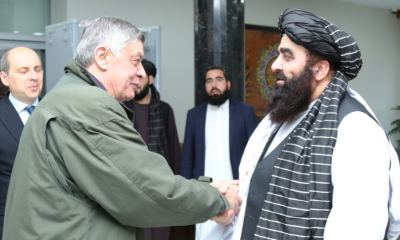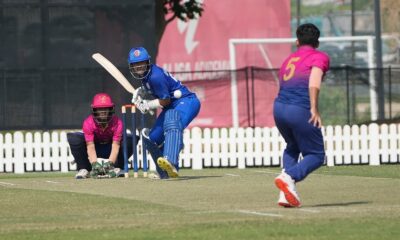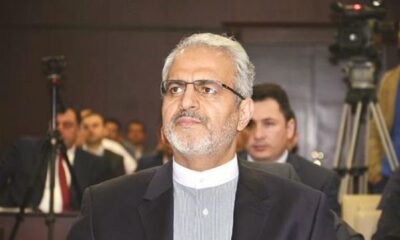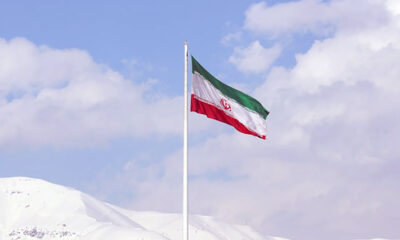Latest News
Former UNAMA chief gives frank opinion on current crisis
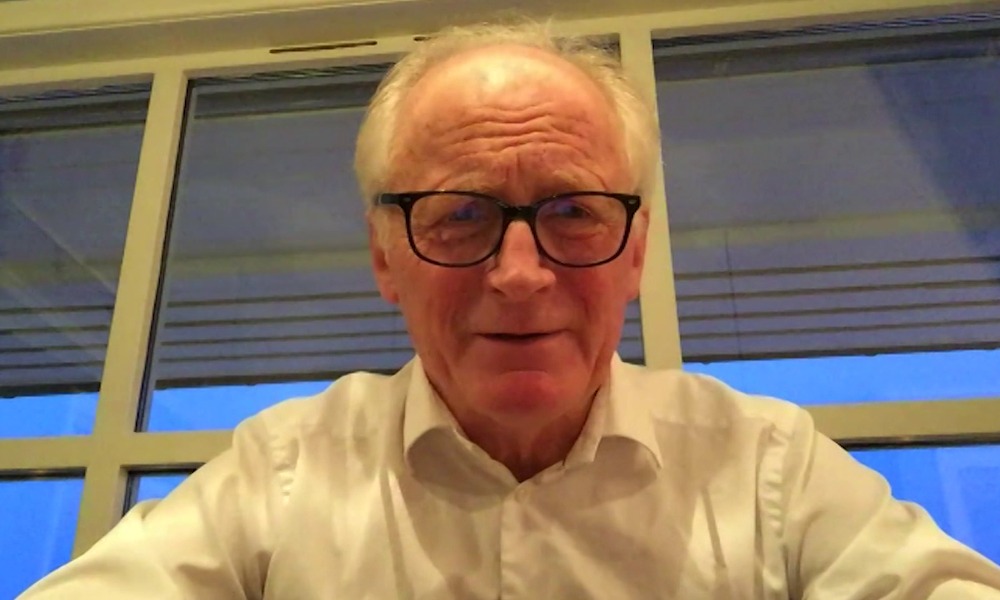
Kai Eide, former head of UNAMA has pointed a finger at Afghanistan’s leaders and said there is little unity among them and that hostile statements made could undermine the peace process.
Referring specifically to the first vice president, Eide said: “I see Amrullah Saleh, the vice president, constantly (making) what I would call rather poisonous statements.
“Yes we need a reduction in the level of violence, but we also need a reduction in the level of polemics that are being thrown out there,” he said adding that this affects “the atmosphere in a bad way”.
In an exclusive interview with Ariana News, Eide said he was shocked at the lack of preparation for peace talks on the part of the Afghan government.
He said discussions had been held for months, ahead of the launch of negotiations in Doha, but that government had been wholly underprepared for the talks.
One example he cited was that members of the High Council for National Reconciliation were only appointed in the lead up to the start of the peace talks. He said the lack of preparedness was “shocking” to him.
He also blasted government and said there was no unity among its leaders and that consensus is needed among Afghan politicians adding that
He said the insufficient preparations for peace talks was “shocking” to him even though officials have had a long time to get the structure right.
He questioned the reason for this and asked if this was “foot dragging or what is the behind this. Certainly there is controversy among the government leaders.”
He also questioned why a technical team for the peace talks had only recently been established and pointed out that modalities and procedures are difficult topics to discuss and decide on and said these can not be discussed just days before negotiations resume.
Clearly frustrated over the speed at which things have been done he said: “Get a structure in place!.”
Regarding the second round of talks, he said he is “worried” that the republic’s team is not ready but also stated that he is not sure if the Taliban team really knows what they want from this round of negotiations.
He said to date the Taliban has really only focused on discussions of a military nature opposed to talks which are centered on civilian and political-related topics.
Asked about the Taliban and who they are, Eide said he thinks they have changed but whether they have changed enough, only time will tell.
However, he said he did not think they can rule Afghanistan again? “No I don’t think so”. Do they want a different relationship with the international community? “Yes I think so,” he said.
“Do they know how to get there? I am very unsure.”
“Their experience is from negotiating military matters now over the last two years and their experience negotiating civilian issues, political issues is very minimal.”
He said he often asks himself whether the Taliban knows themselves where they are heading and what their red lines are.
“Sometimes I hear very combative statements from them regarding issues of key importance.”
On incoming US president Joe-Biden he said he does not think the incoming president will reverse outgoing President Donald Trump’s decision to withdraw troops
But he said he had expected spoilers to come out after the US and Taliban signed their agreement in February last year.
However, what was of serious concern to him was the high levels of violence.
Blunt and to the point he implied that circles within Kabul who do not want the peace talks to progress could be using the high levels of violence as an excuse “to say look the Taliban again. They don’t want to admit. They hiding their face. They really don’t want peace.”
“But I am also worried about the level of violence,” he said implying that if the Taliban, as they claim, are not behind the targeted killings, they “could have reassured the government and the international community” that they would reduce violence “and do it in a way that is visible.
He said violence “is highly counterproductive” and “I wish that would stop immediately”
He also said a ceasefire, although necessary, is “unrealistic at this stage” but what is realistic is that there needs to be a significant reduction of violence - as seen in other conflicts in the past.
Eide stated there is a lack of unity within the Kabul government - which is “frustrating”, especially in light of two “so-called presidents” having taken oath last year which was bad for the Afghanistan democracy.
This was in reference to last year’s election standoff between Ghani and his then CEO Abdullah Abdullah, who is now the Chairman of the High Council for National Reconciliation (HCNR).
He said this was testimony to Afghan leaders not being united - specially after having two election candidates each declare themselves winners and hold their own inauguration ceremonies..
According to Eide, this fiasco not only caused a lot of time to be lost but it also sent out a disappointing message around the world - with the international community asking why could the country’s leaders not unite.
“What I am afraid of is that disagreement is still underlying and hampers the efficiency of the government.
“When you have claims all the time that the agreement is not respected etc; you see Dr Abdullah doing his thing, saying his thing; you see president Ghani saying sometimes other things, and vice president Saleh certainly on a more hostile note whenever he expresses his view.”
“If you want to succeed then you have to be united. And you have to demonstrate a united front,” he said.
Anything else makes you be seen as weak and you cannot afford to be weak in times like this, he said.
On US agreement with the Taliban, Eide said Trump's plan “to end the endless wars” including the Afghan conflict was not well thought out and that the decision to withdraw troops was based on his election campaign promises to end wars the US is involved in.
“I think the question of withdrawal of American forces and international forces was only a matter of time. It would not have lasted much longer under the circumstances.
But he stressed that there was sometimes “no compromise” even though Afghanistan was a democracy.
Eide said it was not possible to have half a democracy and the system as it is needed to be accepted.
In line with this he said the discussions on what type of political system will be established will “be a great challenge” . He also pointed out that another question was around the rights and freedoms of the individual Afghan, including Afghan women and girls.
He said specifically with rights, for women and children and the media, it was critical that this was at 100 percent. He said one can’t go with 50 percent of rights - and that there was no compromise on this.
He said he did not see how a democratic system and peoples’ rights could be negotiated and that it was clear cut - you either “accept them or you don’t accept them”.
But going back to violence, he said it was critical to get the levels of violence down so as to create a calmer atmosphere so negotiators can sit and discuss issues without being distracted.
He also pointed out that the recent calls by officials and Ghani to hold the talks in Afghanistan was not necessary. He stated that it was normal for peace talks to be held in a third country.
He said by raising these types of issues only distracts from the “central issues that are confronting you at the moment.
On the comments by Saleh, the vice president’s office told Ariana News that the first VP has constantly emphasized the need for a reduction in violence and “Saleh has put all of his efforts for maintaining peace in the country.”
Latest News
A high-level Russian delegation will soon visit Kabul: envoy

Russia’s Special Representative for Afghanistan Zamir Kabulov said in a meeting with Acting Foreign Minister Amir Khan Muttaqi in Kabul that a high-level Russian delegation will visit Kabul in the near future to discuss the expansion of bilateral cooperation with the Islamic Emirate.
Kabulov and Muttaqi discussed bilateral relations between Afghanistan and Russia, especially economic cooperation, investment and transit, the Foreign Ministry said in a statement.
Muttaqi described the relations between the Islamic Emirate and Russia as important, stressing that the ties should be expanded to include economic and trade cooperation.
He said visits to Kabul by high-level officials was important, adding that during the past year, many officials of the Islamic Emirate have been invited to Russia to attend international meetings.
Meanwhile, the Russian diplomat said that his country wants to expand its relations with Afghanistan in the economic and trade sectors.
This comes on the heels of Russian Deputy Foreign Minister Andrey Rudenko’s comments that the completion of legal procedures to remove the Islamic Emirate from Moscow’s terrorist list will provide positive impetus to Russian-Afghan relations.
In an interview with Russia’s TASS news agency, published early Sunday, Rudenko said “removing the terrorist organization’s status from the Taliban Movement (Islamic Emirate) will attribute a positive impetus to Russian-Afghan interaction in various spheres, in the economy in the first instance."
"As regards the issue of the official recognition of current Afghan authorities, it is early to talk about it thus far. Let’s act gradually, step by step, but we do not intend to artificially impede the processes," Rudenko noted.
Russia has been slowly building ties with the Islamic Emirate since it regained power in Afghanistan in August 2021 but the IEA is still officially outlawed in Russia.
In response to Russia’s comments last month, the IEA’s acting foreign minister Amir Khan Muttaqi said the Islamic Emirate “appreciates the positive remarks by the high-ranking officials of the Russian Federation in this regard and hope to see more effective steps soon."
Latest News
Iran appoints new ambassador to Afghanistan
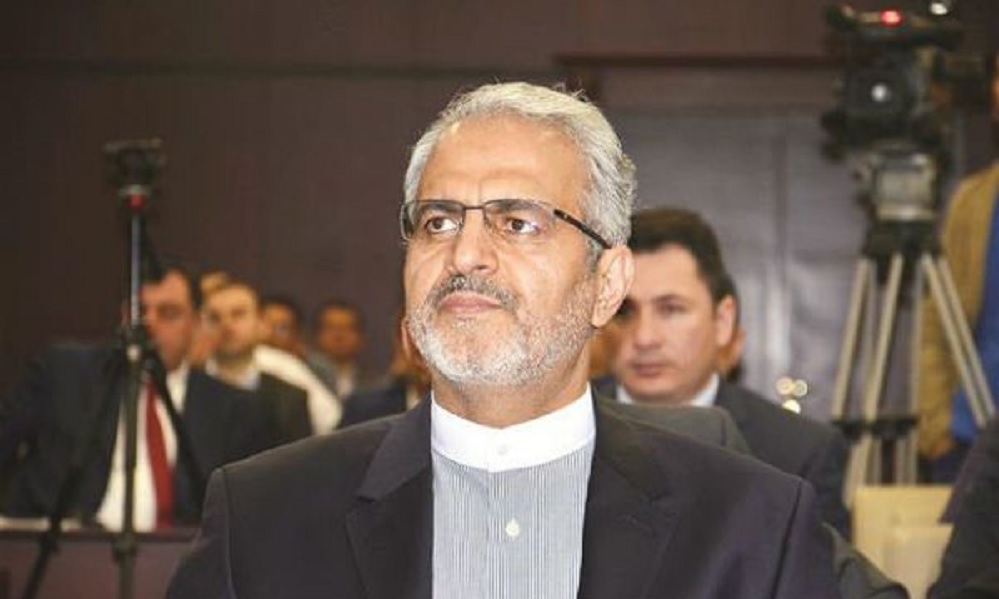
Ali Reza Begdeli, Iran's former deputy foreign minister for consular affairs, has been appointed as the country's new ambassador to Kabul, Mehr news agency reported on Sunday.
The outlet added that the post of the Iranian presidential special representative in Afghanistan has been removed and, as before, the special representative for Afghanistan will act directly under the supervision of the foreign minister.
It is worth mentioning that Hassan Kazemi Qomi previously served as Iran's ambassador and presidential special representative in Afghanistan.
Latest News
Iran to Host ECO Ministerial Meeting next week
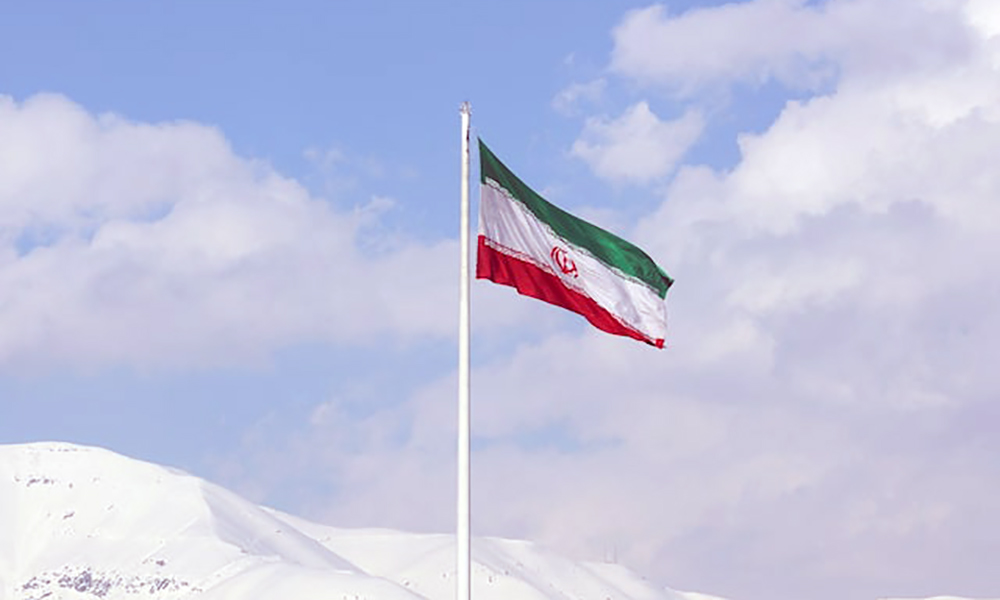
The 28th meeting of the foreign ministers of the Economic Cooperation Organization (ECO) member states will be held in Iran’s northeastern city of Mashhad next week.
Spokesperson for the Iranian Foreign Ministry Esmaeil Baqaei said on Sunday that the upcoming meeting will be attended by the ministers and senior officials of ECO, directors of the regional specialized departments of the organization, and the secretaries general of a number of multilateral economic organizations.
The meeting will be chaired by Iranian Foreign Minister Abbas Araqchi, Iranian local media reported.
Iran is holding the rotating presidency of ECO in 2024.
The Tehran-headquartered ECO was established by Iran, Pakistan, and Turkey in 1985.
The main purpose of the organization is to promote economic, technical, and cultural cooperation among the member states.
In 1992, the organization was expanded to include seven new members, namely Afghanistan, Republic of Azerbaijan, Kazakhstan, Kyrgyzstan, Tajikistan, Turkmenistan and Uzbekistan.
-

 Latest News4 days ago
Latest News4 days agoEU marks International Children’s Day, says it supports Afghan children
-
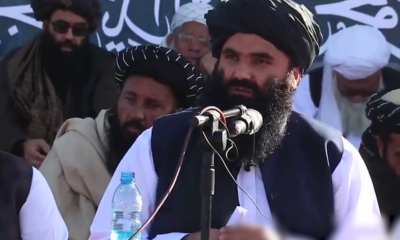
 Latest News5 days ago
Latest News5 days agoAfghanistan wants relations with countries not opposed to Sharia law: Haqqani
-

 Latest News2 days ago
Latest News2 days agoU.S. House approves bill on evacuation of Afghan allies
-

 Sport3 days ago
Sport3 days agoAriana News to broadcast IPL auction live and exclusively in Afghanistan
-
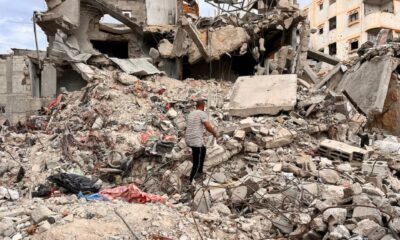
 World3 days ago
World3 days agoUS vetoes UN Security Council resolution on Gaza ceasefire
-
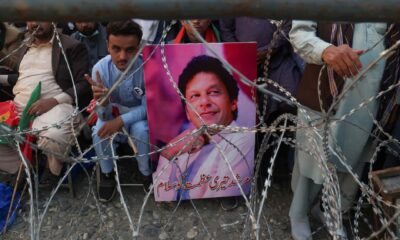
 Regional3 days ago
Regional3 days agoPakistan’s ex-PM Imran Khan gets bail in state gifts case, his party says
-

 Latest News4 days ago
Latest News4 days agoUN moves to unlock stuck climate financing for Afghanistan
-
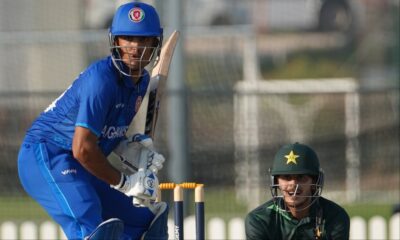
 Sport4 days ago
Sport4 days agoPakistan trumps Afghanistan by only 13 runs in U19 Tri-Series One Day match


